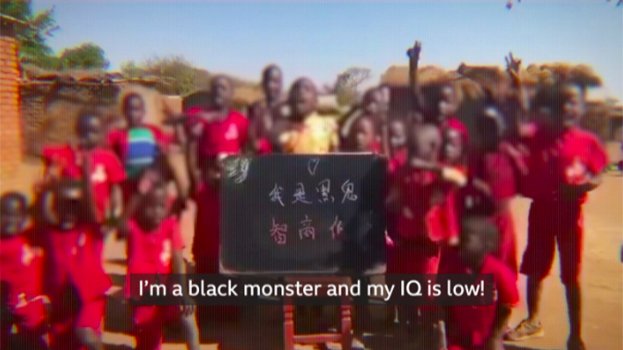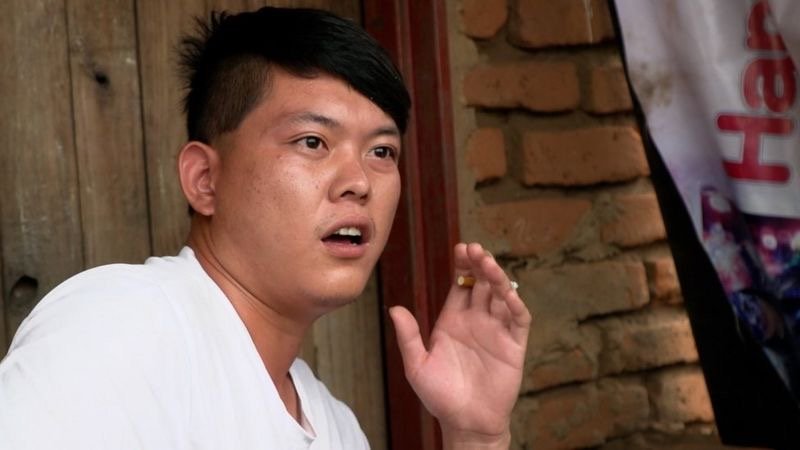
Racism For Sale, BBC Africa Eye, June 2022
By combining open-source analysis, traditional reporting, and undercover journalism, BBC Africa Eye tracked down and confronted one prolific Chinese video producer who used very young children from rural Malawi to make and sell thousands of videos.
In February 2020 a shocking video began circulating on Chinese social media. A group of young African children are being instructed, by a voice off-camera, to chant phrases in Chinese. The kids repeat the words with smiles and enthusiasm — but they don’t understand what they’re told to say is “I am a black monster and my IQ is low.”
Why was this filmed? Where was it shot? Who made it?
These questions sent reporter Runako Celina on a journey into an expansive Chinese video-making industry that exploits vulnerable children across the continent.
After analysing hundreds of similar videos and cross-referencing them against satellite imagery, Runako and the team were able to locate exactly where the ‘Low IQ’ clip was shot: a village on the outskirts of Lilongwe, the capital of Malawi.
There, Runako was joined by Malawian journalist Henry Mhango to begin tracking the digital and on-the-ground footprints of a Chinese filmmaker they suspected of making the ‘low IQ’ video, assisted by an undercover Chinese journalist who recorded the man expressing a series of shockingly racist opinions about Malawians and Black people in general.
The reporters also explored how cultural misunderstandings, rural poverty, and racist exploitation underpin this video-making industry. The grandmother of a child featured in the ‘low IQ’ video told the BBC that the Chinese producer was “profiting from the poor.”
In a tense finale, Runako and Henry tracked down and confronted the man about his exploitation of Malawian children and about the racist attitudes he had expressed.
Gallery
-

Families learn why their children were filming content
-

-

Susu, the man behind the camera
